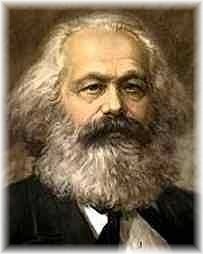The Need to Reclaim Catholic Social Teaching

Catholic social teaching is a magnificent body of doctrine that stems from the Church's understanding of herself as Christ's Bride redeemed, as his Mystical Body vivified by the Holy Spirit. Her rich social doctrine exhibits continuity with every other aspect of her formulated teaching, for the Popes speak from the reservoir of the entire Catholic tradition, that is, from the very heart of the believing Church. This is not always evident, however, when her social doctrine is presented through the filters of the typical social justice advocate.
The reason for this, it seems to me, is that many social justice advocates approach Catholic social teaching from an entirely different angle than the popes of the major social encyclicals of the twentieth century. A large percentage of them were at one time in their lives devotees of Karl Marx, and although some of them have left strict Marxism behind, they continue to approach both social problems and Catholic social teaching from a Marxist habitus, an intellectual disposition that determines what it is they consider important and choose to emphasize in Catholic social teaching. The result is often a very dilapidated doctrine that is politically inspired, misleading, and lacks the fullness exhibited in the encyclicals. Allow me to attempt a brief summary of the essential points of Marxism in order to clarify what I mean.
Brief Summary of Marxism
Marxism is often referred to as a dialectical materialism. This means that reality is nothing but matter, which in turn is in a perpetual state of becoming. Dialectic describes a process in which opposites enter into conflict with one another. The result of this tension is that one side negates the other, giving rise to a new synthesis. For Marx, history is essentially a dialectical process.
Historical conflict bears upon man's activity, the basic form of which is manual labour. Man, according to Marx, develops himself through labour, but certain economic structures and labour relations impede his development and alienate him from his product, which is a reflection of himself. This alienating system, of course, is Capitalism, for within this [wage labour] system, the product of a man's labour does not belong to him.
In response, the working class seeks to recover itself, to overcome this alienation, and according to Marx it can do so only through a social revolution through which it abolishes private property and brings about the transition to communism (a new synthesis).
It is important to keep in mind that in Marxism, the basic historical reality is not the individual person, who for us exists in the image and likeness of God, and who is endowed with a spiritual and immortal soul. Rather, the basic historical reality is, for Marx, social man in his economic activity in nature. The individual is merely a part of social man. He wrote: "In its reality it [the essence of man] is the ensemble of social relations." And so Marxism concerns itself primarily with social acts, not acts that lack an immediate and obvious social significance.
Furthermore, it is the labour of social man, his specific method of production and the economic relations it generates that determine the form of political life, the content of law, and the prevailing morality of the period, not vice versa. It is not that the individual person is able to apprehend the nature of things, such as human nature, or the nature of the state, or the nature of moral conduct and law, thus allowing him to accurately determine the content of just law and the proper form of the state, etc. Rather, ideas, including religious ideas, are determined by the specific economic relations and conditions that prevail in a society. Moreover, history is in process, and so too, therefore, are human ideas. Thus, for Marx, there are no "eternal verities" or absolute truths.
In a capitalist society, law, social structures, morality, current ideas, etc, are all shaped by the dominant class (exploiters/oppressors) for the sake of maintaining power. But such morality has no more objectivity than a fable. Communist morality, on the other hand, is characterized by the revolutionary imperative. In 1920, Lenin wrote: "...for the communist, morality lies entirely in this compact, united discipline and conscious mass struggle against the exploiters. We do not believe in an eternal morality, ...we say: morality is what serves to destroy the old exploiting society and to unite all the toilers around the proletariat, which is creating a new communist society...Morality serves the purpose of helping human society to rise to a higher level and to get rid of the exploitation of labour."
Marxist ethics is an ethics of results. There is no such thing as an act being intrinsically evil or having intrinsic goodness. The goodness and evil of acts are measured by the degree to which they further the cause of the self-emancipation of the oppressed class. So, intentionally killing another human being is not "intrinsically" evil, for one may hang capitalists "from the nearest lampposts", said Marx; doing so only furthers the historical movement towards final emancipation.
Combine this with the fact that for Marx, the basic historical reality is social man, it is obvious why the fundamental virtues of a Marxist worldview are class solidarity, hatred of all oppression, discipline, and devotion to the construction of a classless and communist world.
Latent Marxism
The more familiar we become with the ideas of Marx, the easier it is to detect its presence when under the guise of a Catholic social justice ethics. The first indication of the Marxist habitus lurking behind a particular rendering of Catholic social teaching is the habit of thinking in polemical terms: exploited/exploiter, oppressed/oppressor, etc. and the resulting habit of thinking within an anti-establishment mentality. Thus, the institutional Church, in so far as it is a wealthy establishment, is regarded in a negative light. Relations of male/female, clergy/laity are almost always interpreted polemically as well.
Another indication of a Marxist undercurrent is the conspicuous absence of personal morality, and thus an exclusive emphasis on the social. It is as if the personal and the social are discontinuous, as they were for Marx. For many social justice advocates, issues like fornication, abortion, contraception, and other life issues, are not worthy of serious consideration, for these are regarded as private acts, not social acts of a certain class (the oppressor or exploiter).
The Magisterium, on the other hand, always underscores the link between social injustice and the personal: "The root and font of this defection in economic and social life from the Christian law, and of the consequent apostasy of great numbers of workers from the Catholic faith, are the disordered passions of the soul, the sad result of original sin which has so destroyed the wonderful harmony of man's faculties that, easily led astray by his evil desires, he is strongly incited to prefer the passing goods of this world to the lasting goods of Heaven" (QA, 132).
Another possible clue is the adoption of consequentialism (the moral goodness of human acts are determined by consequences, thus one may do evil that good may come of it); for the rejection of a natural law morality is part of the adoption of a Marxist "ethics of results". One can sometimes detect an ironic blend of moral relativism and absolutism in typical social justice parlance, an inconsistency very present in Marxism. For example, consider the absolute and automatic condemnation of all western military action, but relative silence in the face of the military action of terrorists or Leftists.
One also finds the tendency to regard the poor universally as victims of unjust social conditions--which is, of course, why any violence or military action on their part is not so repugnant. Marx believed in the natural goodness of the individual and held that everything that was wrong in the world was the result of environmental conditions. Evil, in other words, originates not in the heart, but in the "system". Accordingly, criminals too are merely victims of unjust social conditions.
The parallel is that since, in the context of the Church, evil does not exist on the level of the person, it isn't so much the person who needs healing as much as hierarchical structures need abolishing, which is why there is often very little emphasis, if any, on the sacraments, individual confession, the Eucharist, devotions, etc., and a favoring of almost anything that will contribute in some way to abolishing the distinction between the royal priesthood of the faithful and the ministerial priesthood.

Another indication of latent Marxism is the presence of historical progressivism. What is latest is always better in so far as history is moving towards "the kingdom of man deified" (the post communist golden age). Hence, those Catholic social justice advocates who find it regressive to maintain a connection with the past, and why many social justice textbooks, newspapers, or programs lack any visible connection with traditional Catholicism. There is also the tendency, originally present in Marx, to label the opposition as "reactionary", among other more derogatory labels. The rise of Mariology, moreover, is often explained away as a purely natural and historical phenomenon that has its roots in an historical polemic of one kind or another, reminiscent of the Marxist view that ideas arise from and are understood in light of economic structures and the relations they generate.
In typical social justice parlance, we rarely, if ever, come across the expression "works of mercy", either corporal or spiritual. It seems that acts formerly understood as corporal works of mercy have now been subsumed under the designation "justice". It is as if anyone who has been blessed with wealth is no longer part of the oppressed class, and so is automatically part of the class of oppressors. And so what he does with his excess wealth is no longer a matter of mercy or charity, but justice. But one does not encounter this mentality in the encyclicals.
Conclusion
The Marxist or semi Marxist approach to social justice can be attractive and is even described by some as "liberating". This liberation, however, might be nothing more than the feeling of not having to grapple with personal sin and reform in so far as the focus now is almost exclusively on social sin.ΚΚ
And perhaps there are ideologues who approach Catholic teaching from a very right wing vantage point and also end up with a relatively incomplete product. All the more reason to remain grounded in the sources; after all, the official teachers of the Church enjoy the benefit of the charism of office, and they have been careful not to endorse unregulated capitalism on the one hand, and even moderate socialism on the other, warning that the latter is simply irreconcilable with Christianity.
But one clue that a rendering of Catholic social justice teaching proceeds from the heart of the Church is that Christ is proclaimed, not so much as a first century peace activist, but as Saviour and Lord who alone heals human brokenness and who alone ushers in the kingdom of God, which is not of this world. All our good works are nothing more than a gathering of wood and other materials that we lay at the feet of Christ in the hope that he will take these and transform them into a beautiful edifice: "Unless the Lord build the house, in vain do the builders labour" (Ps 127, 1).
Article copyrights are held solely by author.
[ Japan-Lifeissues.net ] [ OMI Japan/Korea ]